Within the framework Vietnam Scaling Up Energy Efficiency Project (VSUEE), on the morning of October 9, 2024, the Ministry of Industry and Trade, in collaboration with the World Bank, organized a roundtable discussion on 'Solutions to Promote the Implementation of the VSUEE Project: Challenges and Opportunities.'
The roundtable was attended by representatives from the Ministry of Industry and Trade, the World Bank, the State Bank of Vietnam, SHB Bank, Viettinbank, HD Bank, along with several financial institutions participating in the project."
Opening remarks, Ms. Nguyen Thi Lam Giang, Director of the Department of Energy Efficiency and Sustainable Development (Ministry of Industry and Trade), affirmed that energy efficiency is a key factor in ensuring national energy security. Vietnam has long established legal frameworks for efficient energy use, recognizing the importance of energy efficiency and conservation. Specifically, since 2010, the Government has enacted the Law on Energy Efficiency and Conservation, with subsequent decrees and guidelines to ensure timely and comprehensive implementation.
Ms. Nguyen Thi Lam Giang, Director of the Department of Energy Efficiency and Sustainable Development at the Ministry of Industry and Trade, delivered the opening speech at the roundtable.
"Along with the issuance of legal documents, the Vietnamese Government has periodically launched national programs on energy efficiency to attract international support as well as the participation of domestic and foreign communities and enterprises. Notably, the Vietnam National Energy Efficiency Programme for the 2019-2030 period set a target to save 8-10% of total national energy consumption.
To achieve these goals, in addition to the efforts of governmental agencies, organizations, and individuals, the Vietnamese Government has been receiving active support from many countries and international organizations. A prominent example is Vietnam Scaling Up Energy Efficiency Project which is funded by the Green Climate Fund (GCF) through the World Bank,” Ms. Nguyen Thi Lam Giang stated.
The project was developed to promote energy efficiency and conservation in Vietnam's industrial sector, contributing to the national energy-saving goals, ensuring energy security, and fulfilling commitments to greenhouse gas emission reductions and climate change mitigation. At the same time, it aims to pilot a credit guarantee mechanism for energy-saving investment projects, remove barriers to accessing commercial loans, create financial incentives, encourage project implementation, and develop the energy efficiency investment market.
According to Mr. Chu Ba Thi, Senior Energy Specialist at the World Bank, although energy efficiency is considered one of the most effective and practical solutions for ensuring energy security and stable economic development, many industrial enterprises and financial institutions have not yet participated in energy-saving investment projects. Therefore, the roundtable will focus on discussing opportunities, challenges, and solutions to strongly promote the implementation of the VSUEE Project shortly."
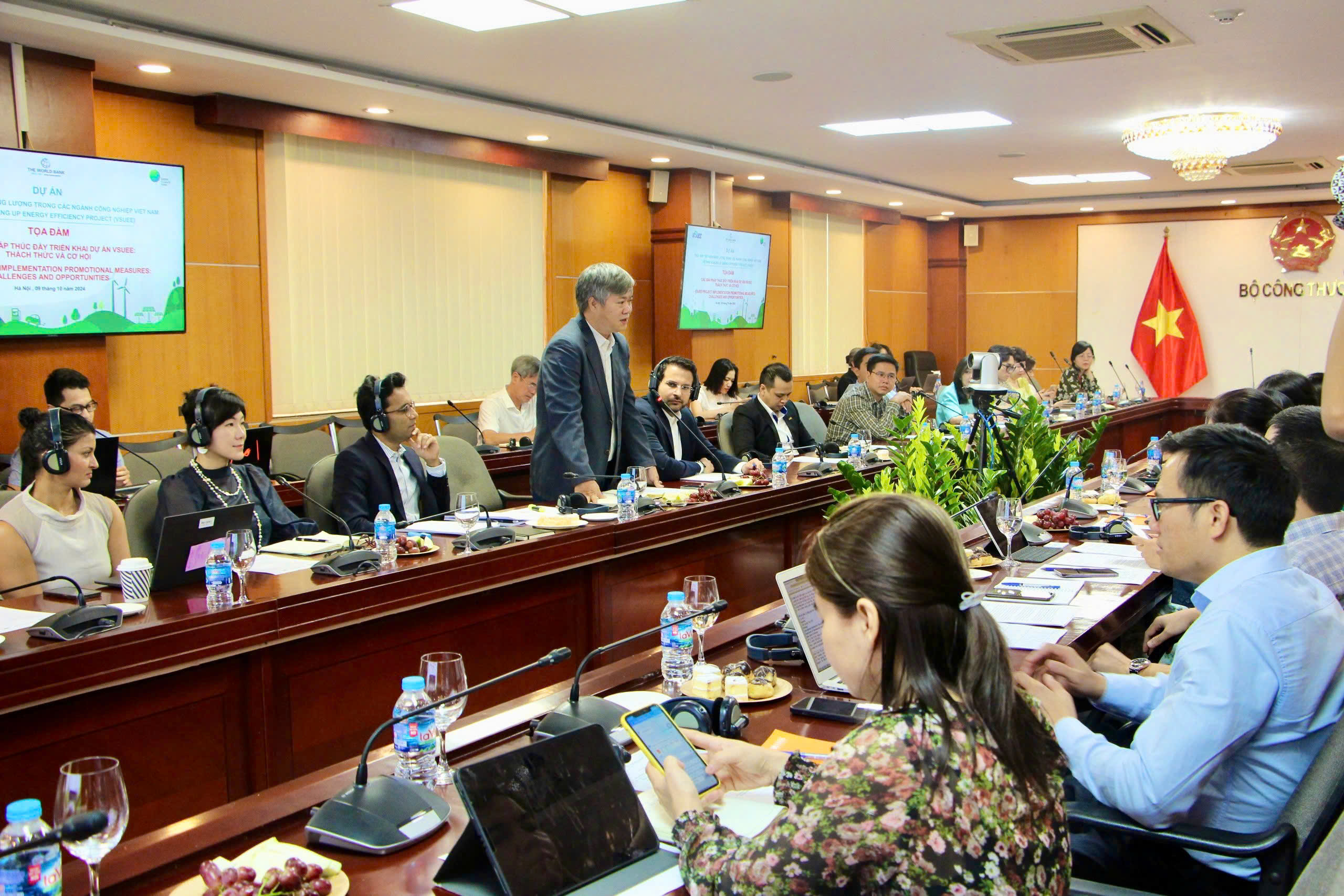
Mr. Chu Ba Thi, Senior Energy Specialist at the World Bank, shared insights during the roundtable discussion
At the event, a representative from the Saigon-Hanoi Commercial Joint Stock Bank (SHB), the management unit of the Risk Sharing Facility (RSF) for the Project, provided detailed information on the RSF and the benefits for Participating Financial Institutions (PFIs) involved in the Project. Accordingly, PFIs participating in the Project will have up to 50% of the loans they provide for energy-saving investment projects guaranteed by the RSF. Additionally, banks will receive in-depth technical training on project evaluation, financial analysis for energy-saving projects, and enhanced opportunities to access funding from international organizations aligned with sustainable development and emission reduction trends.
Mr. Do Tuan Linh, Risk Sharing Facility Board Management's representative introduced the RSF and the guarantee issuance process.
Notably, participating in the Project will allow banks to diversify their investment portfolios by expanding into new sectors and generating long-term profits from green projects. This aligns to develop sustainable banks that meet global trends. By financing energy-saving projects, banks can also improve their image and reputation, creating momentum toward becoming sustainable institutions.
Regarding the process of providing loans for energy-saving projects, Ms. Ngo Thu Ha, General Director of SHB, stated that SHB is ready to collaborate with other banks and businesses to ensure timely information exchange and project assessment, thereby accelerating the Project's progress and ensuring its smooth implementation.
Ms. Ngo Thu Ha, General Director of SHB, Risk Sharing Facility Board of Management Unit.
During the roundtable, the participants also spent a significant amount of time sharing and discussing the challenges and obstacles faced when participating in the Project. Some typical challenges for banks include not having signed framework agreements with implementing units (MGA), issues related to guarantee fees (commitment and guarantee fees), timeframes for guarantee payments, project preparation time for businesses, and the evaluation and credit approval for sub-projects by the banks.
Several solutions to promote the implementation of the VSUEE Project were shared at the roundtable.
To address the remaining difficulties, many opinions suggested that participating financial institutions sign the MGA. At the same time, technical assistance should be provided to identify and develop projects and assist with credit documentation. Additionally, it was proposed that the GCF consider reducing guarantee fees and extending the technical support phase and guarantee issuance period accordingly.
The VSUEE Project, which promotes energy efficiency in Vietnam's industrial sectors, is being implemented from March 2022 to January 2026 nationwide. The Ministry of Industry and Trade, the project’s managing body, is responsible for overseeing the overall project outcomes.
The Project consists of two components: Component 1 - Operation of the Risk Sharing Facility (RSF), with a grant of USD 3 million for RSF activities; and Component 2 - Technical Assistance, with a total cost of USD 8.3 million, aimed at enhancing the capacity of Project participants, developing and completing policy frameworks, providing implementation guidelines, supporting energy-saving activities, reducing greenhouse gas emissions, and addressing climate change. |
Duc Do
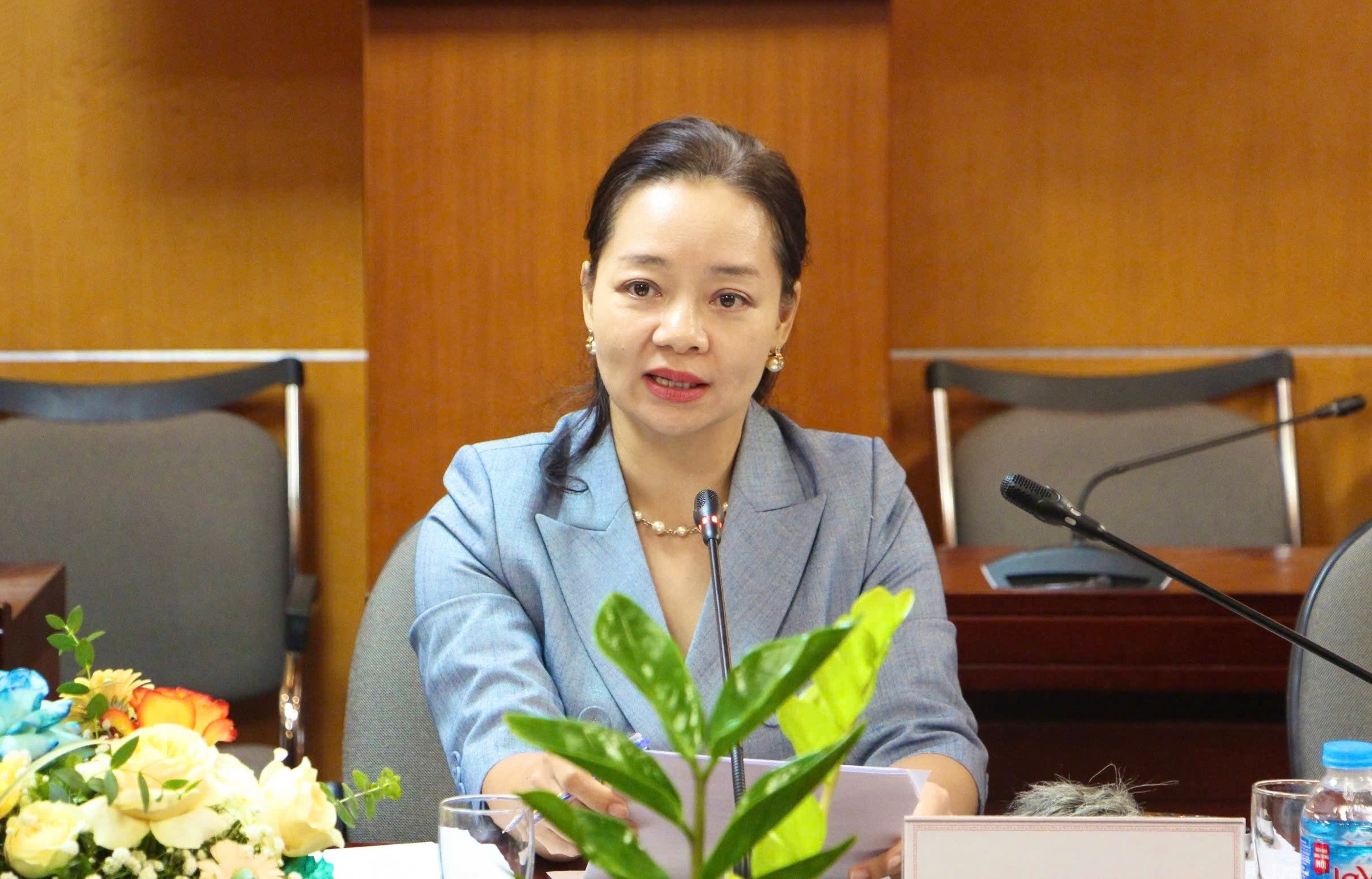

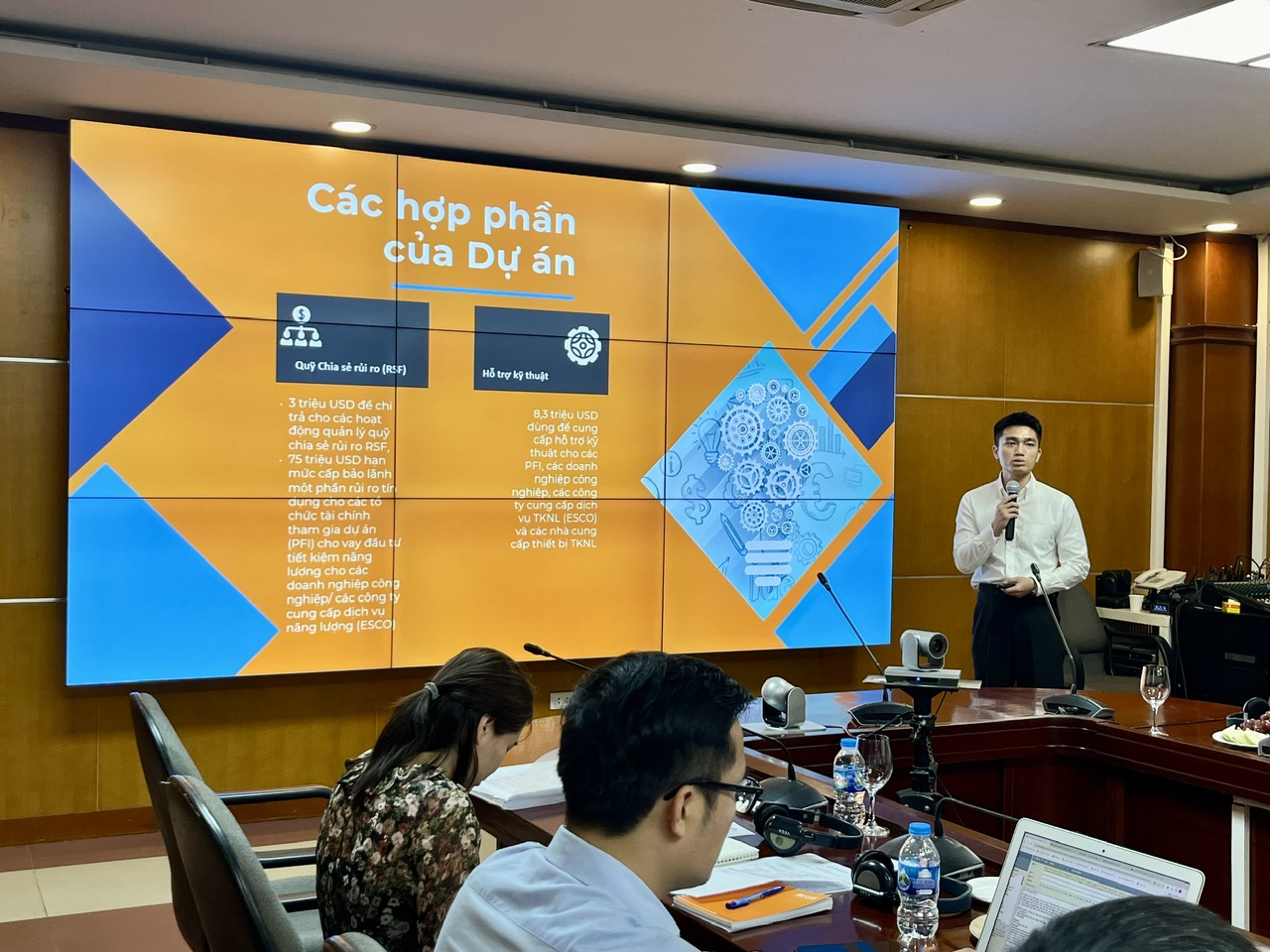
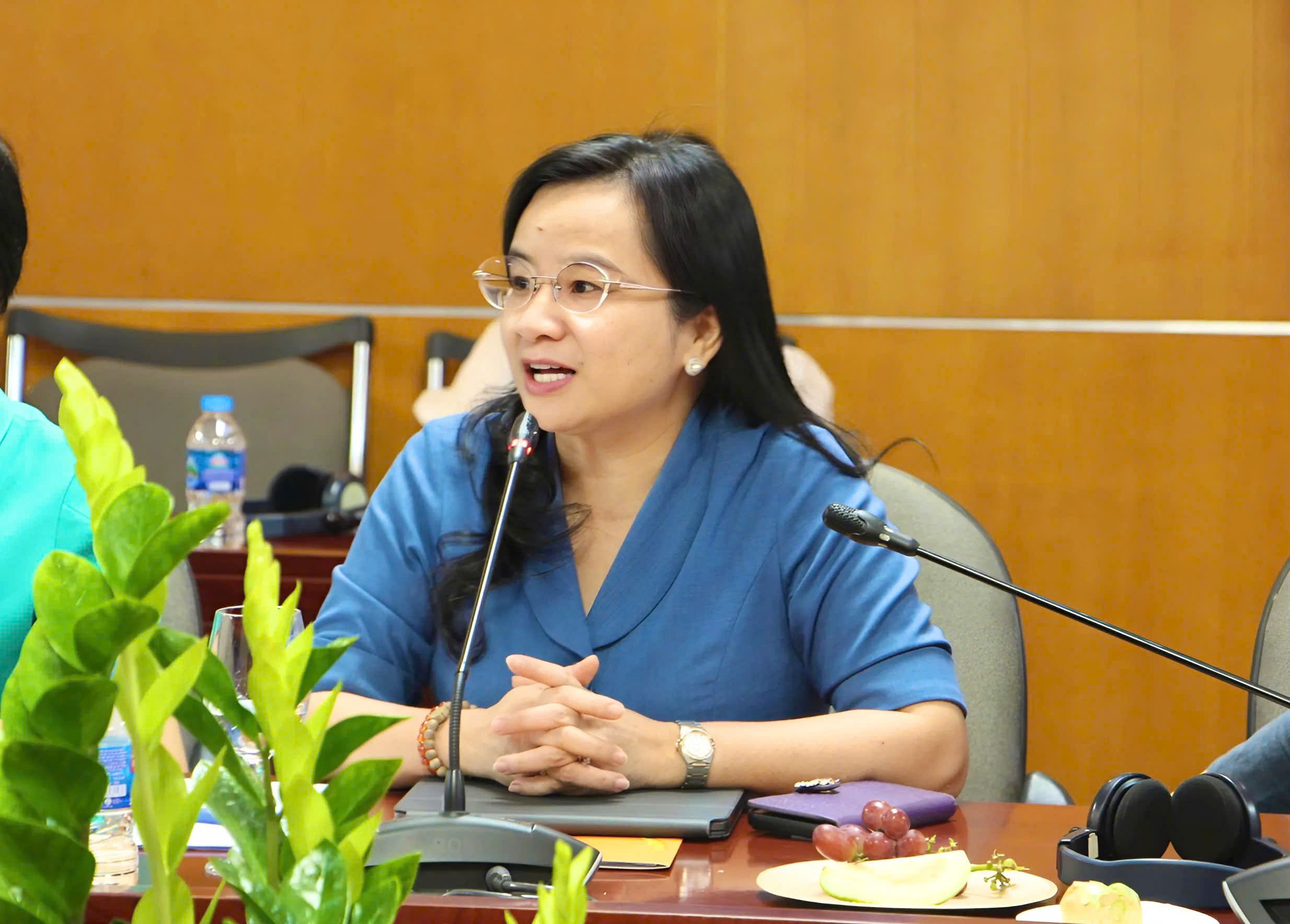
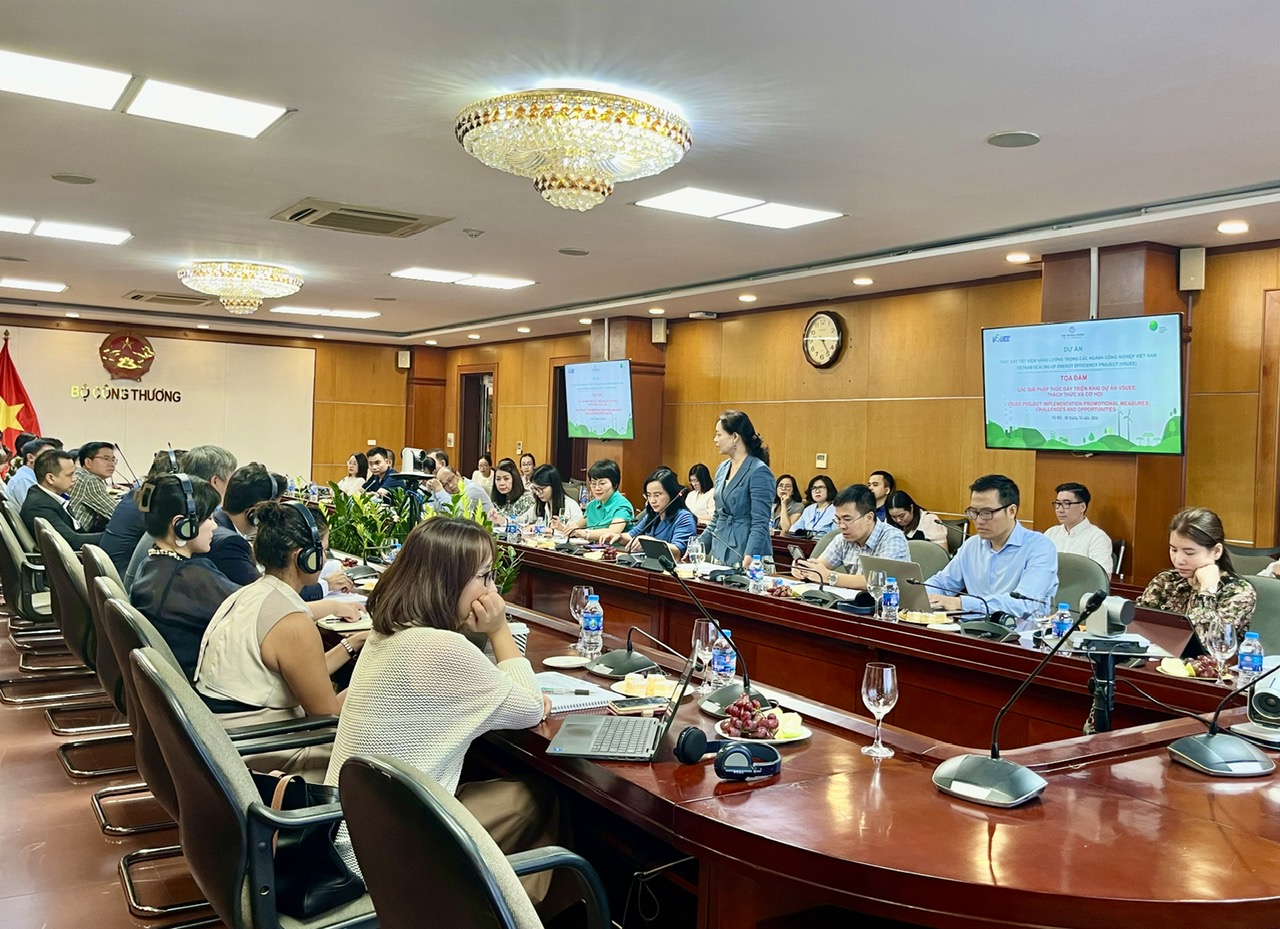








 Consultation on the methodology for developing and updating energy consumption standards for four major industrial sectors
Consultation on the methodology for developing and updating energy consumption standards for four major industrial sectors
 Opening of the 2025 Energy-Efficient Equipment and Green Transition Exhibition Fair
Opening of the 2025 Energy-Efficient Equipment and Green Transition Exhibition Fair
 Energy-saving solutions and green transition promotion
Energy-saving solutions and green transition promotion
 The 9th VEPG Steering Committee Meeting: Strengthening Coordination for Viet Nam’s Just Energy Transition
The 9th VEPG Steering Committee Meeting: Strengthening Coordination for Viet Nam’s Just Energy Transition